
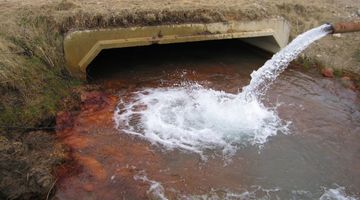
In this online PD session recorded on 5 November 2015, primary school teacher Angela Schipper shares how she adapted resources from across the Science Learning Hub to explore water pollution with ...
READ MORE

Lakes380 – Our lakes’ health: past, present, future is the largest scientific study ever undertaken on lakes in Aotearoa New Zealand. The programme, jointly led by GNS Science and Cawthron ...
READ MORE
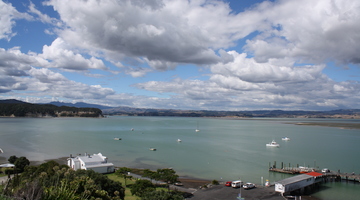
With 75% of New Zealanders living within 10 km of the coast, many students will be familiar with estuaries. In scientific terms, estuaries are the interface between the land and the sea – the ...
READ MORE
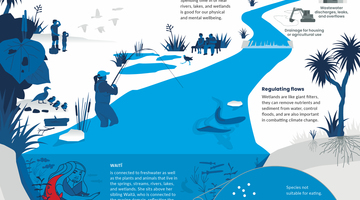
Waitī is a whetū in the Matariki cluster. It is the star connected to freshwater: springs, streams, rivers, lakes, wetlands and the plants and animals that live in freshwater. Aotearoa New ...
READ MORE

Ki uta ki tai – from the mountains to the sea – acknowledges the journey that water makes from the atmosphere to the mountains and across the land. Humans interact significantly with this ...
READ MORE

Riparian zones are the areas beside streams. These areas are sometimes reconstructed or improved to provide habitat for fish and other aquatic life and to stabilise banks against erosion. This ...
READ MORE

Te mana o te wai describes the first right for water being with the water – rivers, lakes and streams as well as the ocean. After human water uses, there must be enough natural flow remaining to ...
READ MORE

As the population increases and water supplies are challenged with human impacts and climate change, a plentiful supply of drinking water in the future is not guaranteed. We need to protect and ...
READ MORE
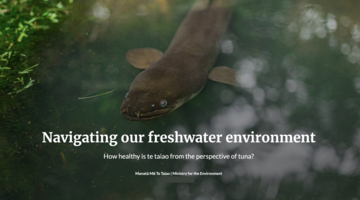
Navigating our freshwater environment is an interactive storymap that explores the state of rivers, lakes and wetlands – in a novel and engaging way. The storymap considers what’s going on from ...
READ MORE
Te ao Māori (the Māori world view) recognises the connections between all living and non-living things. In this video, kairangahau Māori share some of their repo connections with us. Questions ...
READ MORE
ESR scientist Dr Chris Nokes discusses the effect sediment can have on microorganisms in the water. It is possible that microorganisms survive longer in sediment than they do in water, and when ...
READ MORE
ESR scientist Dr Chris Nokes describes why it is important that we manage our water resource so that disease-causing organisms are eliminated from our drinking and recreational water. In New ...
READ MORE

Use this interactive graphic organiser to explore your personal views and values relating to water. Place each statement card where you feel it belongs. There are no right or wrong answers.
READ MORE
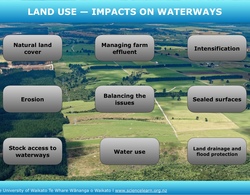
Discover some of the issues involving land use and water quality. Click on the labels for more information. Select here to view the full transcript and copyright information.
READ MORE

There are several physical, chemical and biological indicators that are monitored for water quality purposes. Click on the labels for more information. Select here to view the full transcript and ...
READ MORE